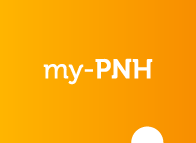Physical and emotional wellbeing
Lifestyle changes to help support you
A PNH diagnosis is often life-changing, as the condition can significantly affect your quality of life, but there are lifestyle changes that may be able to help you on your journey.
PNH is a complex disease that impacts each person differently, so it’s important to identify what works for you. The tips below may help you live more comfortably with your PNH.

Being active
Maintaining movement promotes both physical and emotional health and can help to counteract chronic fatigue.1
Physical activity can range from gentle exercises, such as walking, yoga and light housework, to more intensive activities, such as cycling or running.
It is important to discuss any new physical activity or exercise with your doctor before you begin.
Being mindful
Mindfulness is an awareness of what's happening at a certain point of time in your mind, body, and the world around you, coupled with an attitude of curiosity and kindness.2
Evidence suggests that being mindful may reduce stress. It may also make you more resilient to new challenges.2, 3
Different people practice mindfulness in different ways; they may go for a quiet walk or use an app on their mobile phone or tablet. Think about whether any of these options could work for you.


Small changes can make a difference
While there is no special diet that can alleviate all your PNH symptoms, it’s important to maintain a well-balanced diet containing lots of fruits and vegetables.1
Resting when you need it
Sufficient rest and gentle exercise can help you manage your fatigue:
- Ensure you get sufficient rest4
- It can be helpful to maintain regular sleeping patterns4
- Consider avoiding drinks containing caffeine and alcohol which can interfere with the body’s ability to rest4
- If you’re able to, some physical activity could be helpful4,5
Don’t do it alone! Support can come from different corners of life and can include family, friends, patient advocacy groups or external resources.
Reaching out to connections in your support network can be the first step to understand and support positive change. Additionally, discussions with your doctor or involvement with patient advocacy groups can bring new insights and support change. In our Resources section, you can find more information on organizations that can offer support with living with PNH.
For more information and support on managing your PNH from a holistic approach, Better Living with PNH offers a range of free practical materials and tools on yoga, nutrition, fitness and mindfulness
References:
1. AAMDS International Foundation. Caring for Yourself. Available at: https://www.aamds.org/treatments/self-care. [Last accessed: May 2022].
2. Mindfulness All-Party Parliamentary Group. Mindful Nation UK. Updated October 2015. Available: https://www.themindfulnessinitiative.org/mindful-nation-report [Last accessed: May 2022]
3. Cavanagh K, et al. Can mindfulness and acceptance be learnt by self-help? A systematic review and meta-analysis of mindfulness and acceptance-based self-help interventions. Clinical Psychology Review. 2014;34(2):118-29.
4. AASM. Sleep education. Available at: https://sleepeducation.org/healthy-sleep/healthy-sleep-habits. [Last accessed: June 2022].
5. AAMDS International Foundation. Caring for Yourself. Available at: https://www.aamds.org/treatments/self-care. [Last accessed: June 2022].
